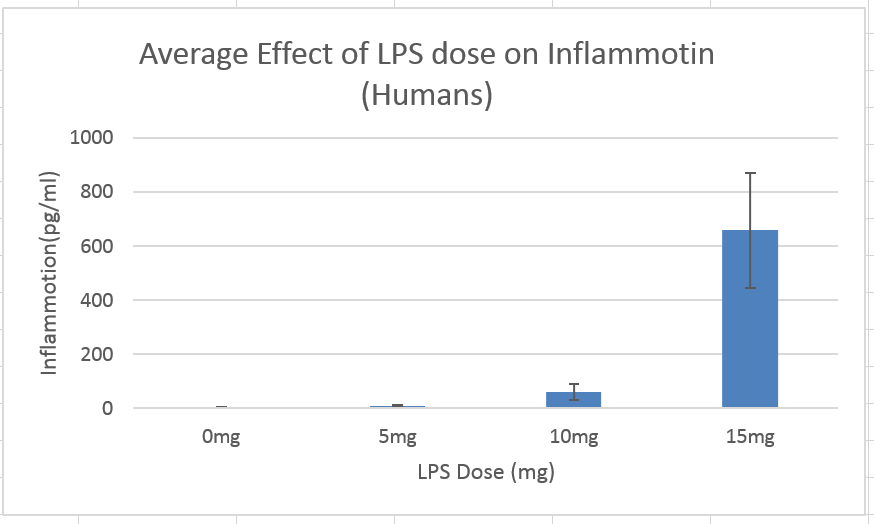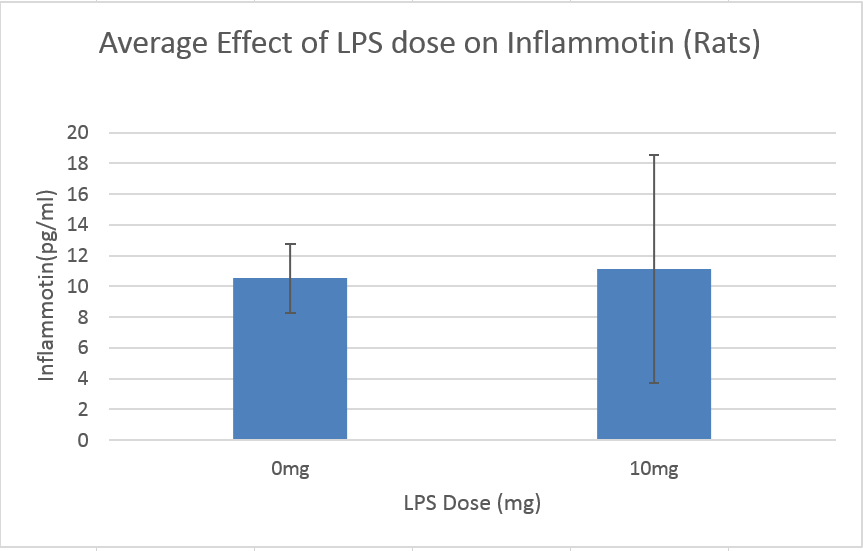BME100 s2015:Group15 12pmL2
| Home People Lab Write-Up 1 | Lab Write-Up 2 | Lab Write-Up 3 Lab Write-Up 4 | Lab Write-Up 5 | Lab Write-Up 6 Course Logistics For Instructors Photos Wiki Editing Help | ||||||
OUR TEAM
LAB 2 WRITE-UPDescriptive StatisticsExperiment 1 Experiment 2
ResultsExperiment 1 Experiment 2
AnalysisExperiment 1 Experiment 2
Summary/DiscussionThe hypothesis that LSP treatment increases inflamation protiens was proven correct when the experiement was done on human subjects and after a certian milligram doseage. The first two groups of elderly (given 0mg and 5mg) showed no or little change. Subjects from group three and four (given 10mg and 15mg) showed significant changes in an increased inflamation protiens. Compared to experiment two with the rates (group one given 0mg and group tow given 10mg), the T-test proved to have little or no significant changes in there inflmation protein count. In conclusion, human subjects showed an increase of inflamation protiens after given a dosage of LSP of 10mg or higher. While the controlled rat subjects showed little increased inflamation protiens when given 10mg of LSP. |
||||||









